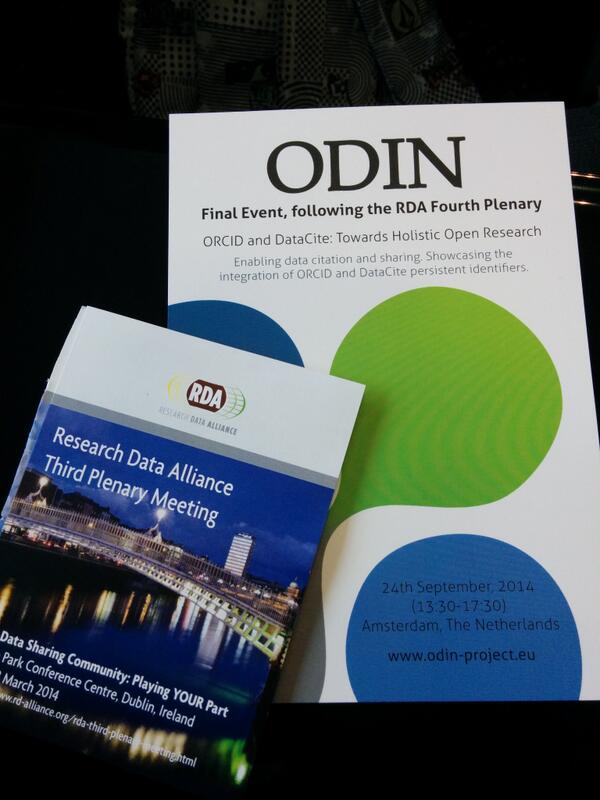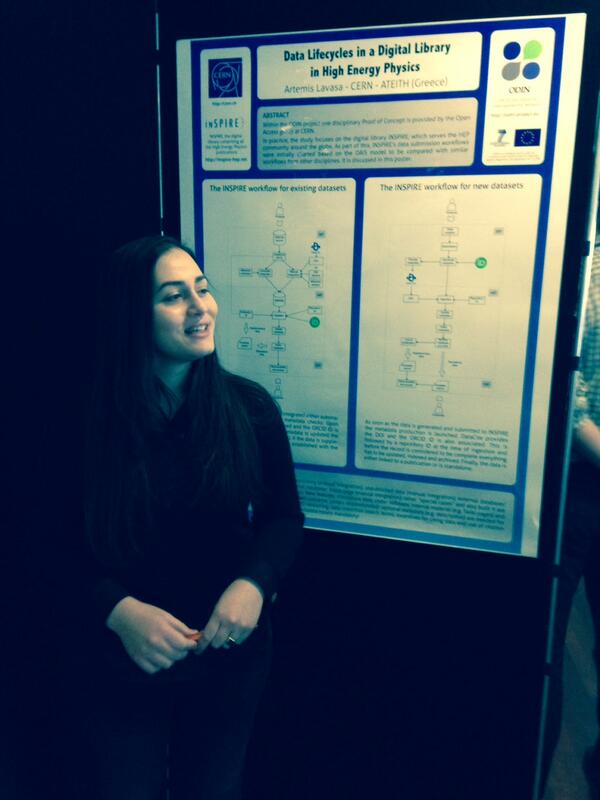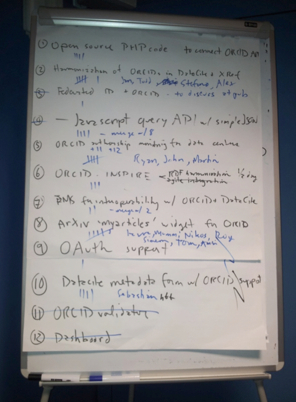ODIN partners are heavily involved in the Open Repositories this year. We organize a panel discussion and a developers challenge, meaning that we do not only want to discuss and explain persistent identifiers, but also trigger some “hands-on” development on the latest DataCite and ORCID APIs. We hope to see you around!
But lets look at the details:
The dev challenge starts on Monday, the 9th of June. DataCite and ORCID technical staff will provide a technical walk-through to introduce developers to the current APIs. Technical staff will be on-hand throughout the days to answer questions and actively facilitate participant projects. This challenge is to use the open APIs provided by DataCite and ORCiD to build an application or service based on these persistent, shared, and open identifiers.
A non-exclusive list of possible areas on which to focus:
- Data author discovery or disambiguation
- Tracking institutional output
- Curation or collaboration tools
- Linking related research objects
- Tracking of citations or alternative metrics to data
- Allowing personal repositories to take advantage of ID systems
If you have an idea already, don’t hesitate to contact us and share it!
As an appetizer for the challenge, we organize a webinar where you can learn about the latest tech details ahead of time. It will take place the 3rd of June and you can find all the details here!
The panel discussion is on Thursday 12th
The panelists will discuss projects underway to test the use of shared persistent identifiers to support interoperability between research systems, how such interoperability affects data sharing and citation, and how it can serve as a springboard for new services. Speakers from ORCID and DataCite will discuss implementation challenges for persistent identifier registries, including community engagement and support for development of third-party services. Dryad and CERN will focus on the challenges and opportunities for integrating shared persistent identifiers.
The discussion will focus on the challenges ahead of use: While substantial progress has been made, there are still steps to take, including disciplinary requirements and engagement of the researchers themselves in using the identifiers and data-sharing tools. One demanding domain is data publication, which involves new forms of citation, questions on how authorship should be treated, and lack of standards for crediting researchers who share their data.
By the way, if you are interested in us, the ODIN’s partners, this is the unique opportunity to meet most of us in person. Our colleagues even come from Australia. So, drop us an email if you want to share a drink!
For any further details, visit our OR14 section.



